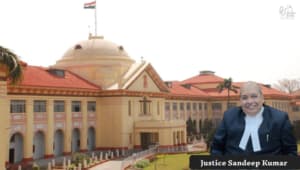In a significant ruling, the Supreme Court of India has refused to entertain a Public Interest Litigation (PIL) seeking the inclusion of the Are-Katika (Khatik) community in the Scheduled Castes (SC) category nationwide. The Court emphasized that only Parliament has the power to make such modifications, reinforcing the long-standing legal position that courts cannot alter the SC list.
A Supreme Court bench comprising Justice B.R. Gavai and Justice Augustine George Masih heard the matter and dismissed the petition, marking it as withdrawn. The bench was firm in its stance that neither the Supreme Court nor the High Courts possess the authority to alter the SC list.
“How is such a petition tenable? The issue has already been settled by multiple Supreme Court judgments. We cannot even alter a comma,” observed Justice Gavai during the hearing.
The petitioner sought permission to withdraw the petition, and the Court granted it. However, when the petitioner's counsel suggested approaching the High Court for relief, Justice Gavai responded sharply, reiterating that even the High Court does not have the jurisdiction to make changes to the SC list.
“Only Parliament has the power to make such amendments. It is well settled that courts cannot modify the Scheduled Castes list, not even a single entry,” the bench noted.
Read Also:- Workplace Reprimand for Official Duties Not a Criminal Offense Under IPC Section 504: Supreme Court
Background of the Petition: Are-Katika Community’s Plea
The PIL was filed by the Telangana State Are-Katika (Khatik) Sangh against the Union of India, arguing that the Are-Katika (Khatik) community, primarily composed of Hindu butchers, has historically faced social discrimination due to its profession. Members of the community, engaged in the slaughter and sale of sheep and goats, often live near slaughterhouses, which has led to their social exclusion.
The petition highlighted a disparity in caste classification across different states:
- In some northern states, the Are-Katika community is recognized under the Scheduled Caste (SC) category.
- In other states, it falls under the Other Backward Classes (OBC) category.
This variation creates complications, especially when community members relocate due to marriage or employment. If they move from a state where they hold SC status to one where they do not, they lose their SC recognition, affecting their access to government benefits and reservations.
The petition cited past efforts to secure SC status for the Are-Katika community:
- 2006: The Office of the Registrar General of India first reviewed a proposal for inclusion but did not support it, citing insufficient ethnographic data.
- 2021: The petitioner submitted a fresh request to the Ministry of Social Justice and Empowerment, followed by multiple reminders. However, the proposal was not approved.
During the hearing, Justice Gavai made a pointed reference to the 2023 Manipur case, where a High Court directive asking the state to consider adding the Meitei community to the Scheduled Tribes (ST) list led to widespread riots and unrest. Eventually, following a review petition, the High Court withdrew its direction.
This reference underscored the sensitive nature of caste-based reservations, reinforcing the need for legislative—not judicial—intervention.
After hearing the arguments, the Supreme Court permitted the petitioner to withdraw the plea, officially disposing of the case. The judgment reaffirmed the principle that any amendments to the Scheduled Castes list fall strictly under the purview of Parliament.
“It is only Parliament that can effect such changes. The courts have no role in modifying the list,” the bench concluded.
Case Title: TELANGANA STATE ARE-KATIKA (KHATIK) SANGH Versus UNION OF INDIA AND ORS., W.P.(C) No. 141/2025















